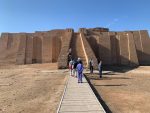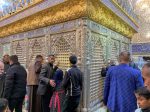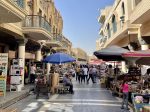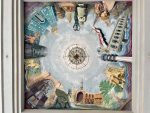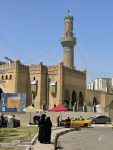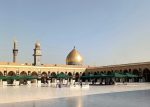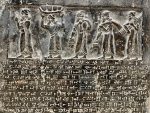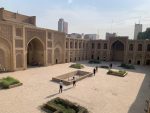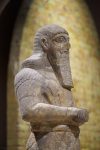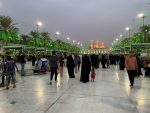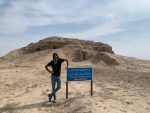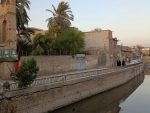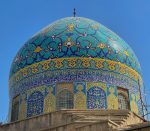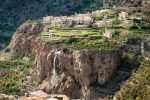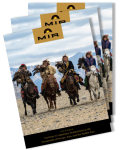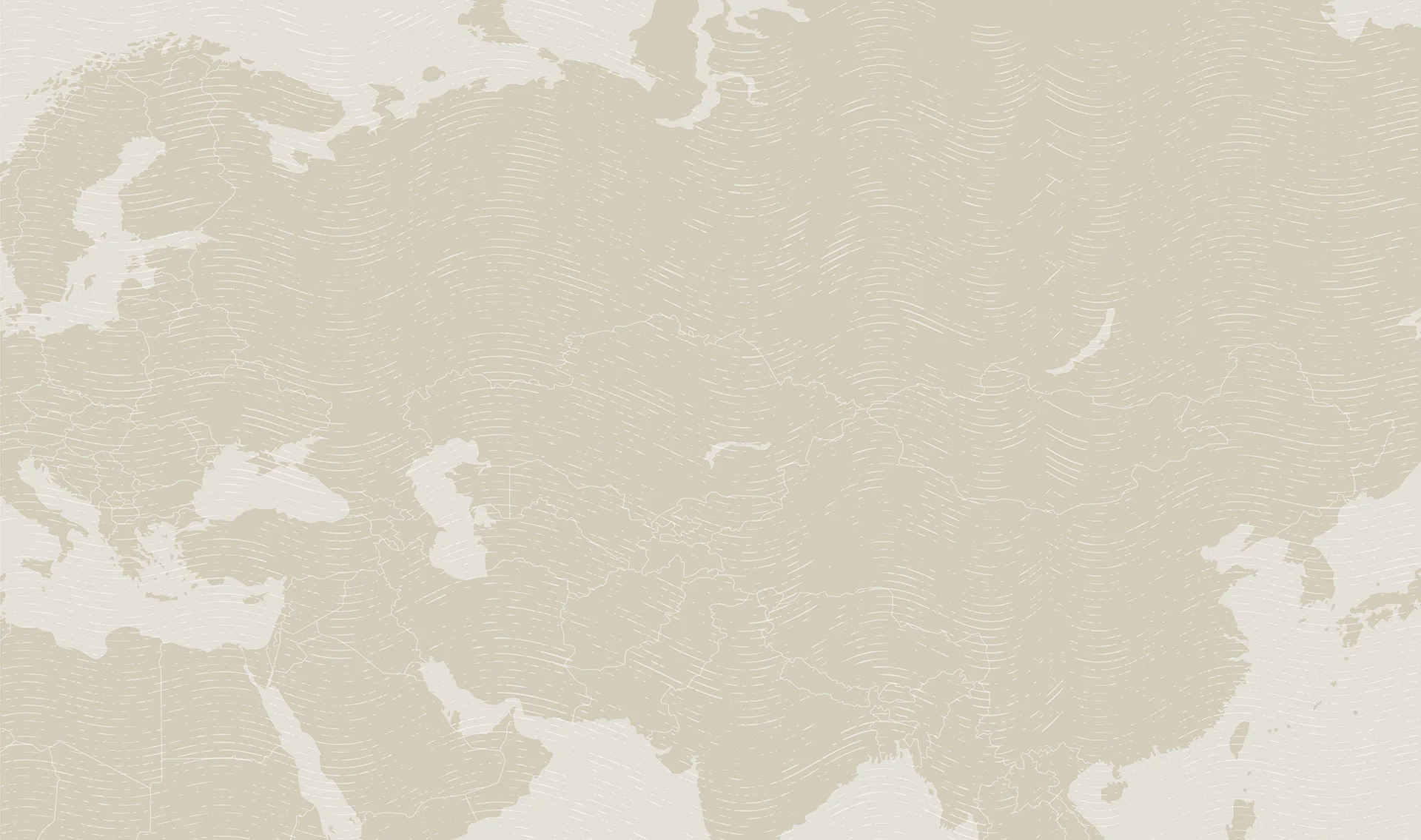Modern Mesopotamia
Photo credit: Explore Mesopotamia
Baghdad, Babylon, Mosul, Erbil
Overview
Start in the Persian Gulf port city of Basra and wend your way through Iraq from south to north, taking in ancient Mesopotamian archaeological sites and exploring modern Mesopotamian culture as you go. Visit the ruins of some of the planet’s most ancient civilizations: Sumerians, Akkadians, Babylonians, and beyond. Spot kingfishers and other wetland birds as you cruise through the homeland of the Marsh Arabs. Explore the fantastically ornate shrines of Karbala, an important pilgrimage site for Shias worldwide. Get a feel for modern Iraqi life as you explore the bazaars of Baghdad and meet with local students. Head to Mosul to visit the UNESCO-listed ruins at Hatra, Ashur, Nimrud, and Nineveh. End in semiautonomous Kurdistan in the far north of Mesopotamia, homeland to the Kurds, the Yazidis, Assyrian Christians, and many others.
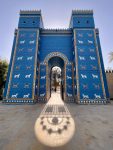
Map
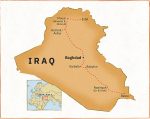
Itinerary
-
Days 1-4: Basra (Iraq), Nasiriyah, Ur, and Uruk

Begin the journey in Basra, a purported site of the Biblical Garden of Eden near the Persian Gulf. Explore some of the Mesopotamian Marshes from a small boat, and later see where the Euphrates and Tigris meet to form the Shatt al Arab. Stop in Nasiriyah to view its bustling markets, and make a day trip to visit the UNESCO-listed ruins of ancient Sumerian city-states of Uruk and Ur.
HIGHLIGHTS
- View Ottoman-era Shanasheel houses along the canals of Basra, largely in disrepair now but still evocative of a bygone era, and the subject of UNESCO-supported efforts to revive the traditional carpentry techniques used to build them
- See where the Euphrates and Tigris meet to form the Shatt al Arab, a purported site of the Biblical Garden of Eden, and then later head out on the Shatt al Arab to see Basra from a new perspective
- Glide through the waterways of the Marsh Arabs’ reed-thatched domains on a traditional boat. Learn about their culture and recent history as you explore the waterways
- Step back in time exploring the millennia-old Sumerian city-states of Ur and Uruk, both included on UNESCO’s World Heritage List, walking where the earliest cities sprang to life
-
Days 5-6: Babylon, Karbala

Cross through the ancient heartland of Mesopotamia to view Babylon, both the ancient ruins and one of Saddam Hussein’s palaces. Babylon was for millennia an important city in southern Mesopotamia, and modern Babylon is a UNESCO World Heritage-listed archaeological site. Then continue to Karbala, an important pilgrimage site for Shia Muslims and the location of the historically important Battle of Karbala.
HIGHLIGHTS
- Contemplate the history of Shia Islam at the spectacular pilgrimage sites of southern Iraq, especially the Imam Husayn Mosque in Karbala
- Wander the ruins at Babylon, one of the most famous of Iraq’s many ancient cities.
- Explore the fortress at Ukhaidir, described by Gertrude Bell in the early 1900s.
-
Days 7-10: Baghdad, Samarra, Mosul

Continue through Mesopotamia towards Baghdad, Iraq’s capital and largest city. Explore the local culture in the souqs and streets and get acquainted with the country’s ancient history while browsing the exhibits at the national museum. Head out of town on a day trip to view the Great Mosque of Samarra and its impressive Malwiya Minaret. Then head to Mosul, a good base for day trips to the UNESCO-listed ancient sites of Nineveh, Ashur, Nimrud, and Hatra.
HIGHLIGHTS
- Acquaint yourself with the daily life and everyday people in contemporary Baghdad as you browse the booksellers and markets on Mutanabbi Street
- Explore the many galleries and hundreds of thousands of artifacts housed at the Museum of Iraq, one of the world’s best museums, especially for ancient Mesopotamian civilizations and Islamic history
- Take in the 9th-century Malwiya Tower in Samarra, one of the world’s oldest and largest minarets, rising like a beached seashell above its surroundings
- Take day trips to the UNESCO-listed ancient sites of Nineveh, Ashur, Nimrud, and Hatra
-
Day 11-13: Lalish (Kurdistan), Erbil

Crossing into Kurdistan, discover the spiritual Mar Mattai Monastery and meet with a Syriac Orthodox monk here. Visit the sacred Yazidi temple at Lalish before ending in Erbil, Kurdistan’s largest and best connected city. Visit the city’s UNESCO-listed citadel and the Qaysari Bazaar below, along with other important sights like the 12th-century Choli Minaret.
HIGHLIGHTS
- Meet with a Syriac Orthodox monk at the ancient Monastery of St. Matthew, learning more about this little understood sect of Christianity and taking in sweeping views of northern Mesopotamia from the scenically perched compound
- Explore Lalish, the religious and cultural focal point for the Yazidi people, who were brutally persecuted by the Islamic State during their occupation of nearby areas
- Gaze out across the ancient city of Erbil from atop its UNESCO World Heritage-listed citadel, now preserved and home to a textiles museum
- Enjoy a meal of traditional, home-cooked cuisine at the home of a local family in Erbil, chatting with them to learn about their lives and place in modern Kurdistan, accompanied by a performance of Kurdish folk music
Dates & Prices
Small group tour – max 16 travelers
Land tour price, per person. Based on double occupancy and minimum group size of 6 travelers.
-
2025 Dates
Nov 12 - 24Tour, double occupancy$8,895Single supplement$1,395
-
2026 Dates
Feb 4 - 16Book select 2026 tours at 2025 rates for a limited time!Nov 11 - 23Book select 2026 tours at 2025 rates for a limited time!Tour, double occupancy$8,895Single supplement$1,395
What's Included
-
Tour Includes
- Accommodations, as noted in the itinerary.
- Most meals, as noted in the itinerary: 12 breakfasts, 11 lunches and 12 dinners.
- Restaurant tips for included meals.
- Services of experienced, English-speaking local guides, drivers and other staff, including a MIR Tour Manager.
- Arrival/departure airport transfers. MIR will arrange for all travelers to be met on arrival and seen off on departure whether we make your airfare arrangements or not, provided you arrive and depart on the tour start/end dates in the tour start/end cities.
- Ground transportation throughout itinerary by private mini-coach, jeep or van (size of vehicle depends on group size and terrain and may vary from region to region).
- Guided sightseeing tours and entrance fees as outlined in itinerary.
- Gratuities to local guides, drivers, porters and other service personnel.
- Complete pre-departure electronic document that includes detailed packing suggestions, reading list links, country-specific information, maps, travel tips and more.
- Customized visa instruction kit (please note, visa fees are not included in the tour price).
- Electronic final update bulletin, with any late news, updates and important information.
-
Not Included
- International airfare or taxes/fuel surcharges.
- Meals not specified as included in the itinerary.
- Single supplement charge, if requested or required.
- Items of a personal nature (phone calls, email, laundry, alcohol, excess baggage, etc).
- Visa/passport fees, airport departure fees.
- Expenses incurred as a result of delay, modification or extension of a tour due to causes beyond MIR’s control.
- Baggage handling.
- Gratuities to Tour Manager.
- Travel and trip cancellation insurance.
Activity Level
-
Level 3: Medium
Level 3: Medium
The accommodations vary from three- to five-star properties. It is important to keep in mind that parts of Iraq are not up to the standards North American travelers expect. Services are improving; however, you may encounter problems with bureaucratic service, road conditions, plumbing, unpaved sidewalks, uneven surfaces and steps, variety of locally available foods, and availability and quality of public restrooms. You are traveling in some areas that see relatively few travelers, and the infrastructure is not yet fully developed.
While this program is designed to be the most comfortable possible for travel in this region, it is rated as rigorous touring due to the daily walking involved, the length of some bus rides and the overall shortcomings of the tourism infrastructure. This itinerary features a significant amount of touring on foot. Many streets are made of packed dirt, and some attractions are only accessible via steep staircases with tall uneven steps. Often the museums have no elevators. During touring excursions, availability of western toilets is unreliable in in the region. Many public toilets encountered during touring, at museums, at restaurants and so forth are squat toilets, and handrails may be inadequate.
Every effort has been made to make the information in this schedule accurate. However, trip itineraries are always subject to change. We do our best to inform you in advance of any changes, but due to the nature of travel in the region, this may not always be possible. Only those willing to accept these conditions should consider joining this program.
To reap the full rewards of this adventure, travelers must be able to walk at least a mile a day, keeping up with fellow travelers. Flexibility, a sense of humor and a willingness to accept local standards of amenities and services are essential components to the enjoyment of this trip.
